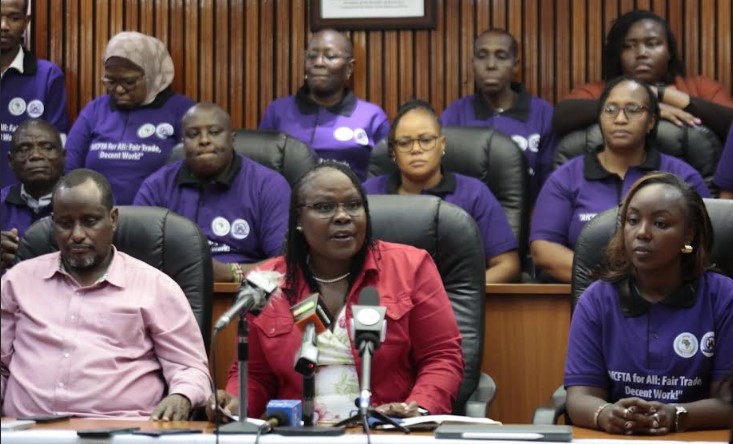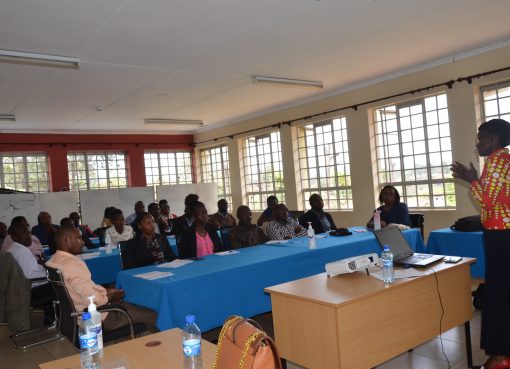The Central Organisation of Trade Unions Kenya (COTU-K) has called for consideration of workers’ rights in the implementation of the African Continental Free Trade Area (AfCFTA) pact due to the growing protectionist policies and shifting global trade dynamics.
Speaking on Thursday during a press briefing, COTU second Assistant Secretary-General Ms. Carolyn Chepkoech Rutto warned that without a rights-based approach, the agreement could deepen inequalities and exploit workers instead of fostering inclusive economic growth.
“As COTU-K, we strongly affirm that trade union rights and workers’ voices must be fully integrated into AfCFTA’s implementation framework,” she said.
She noted that the economic policies pursued by U.S. President Donald Trump and the trade approaches of Western countries have shown that African nations must prioritise intra-African trade to achieve economic self-reliance.
Ms. Rutto said that COTU-K, in collaboration with ITUC-Africa, has been engaging the Government of Kenya and the Ministry of Investments, Trade, and Industry to formally integrate trade unions into Kenya’s AfCFTA National Implementation Committee (NIC).
The union emphasized that, workers are the backbone of trade since every sector benefiting from AfCFTA relies on labour, both formal and informal, for production, distribution, and service delivery.
She said trade agreements must create jobs, not just profits, since without proper labour safeguards, AfCFTA could exploit workers and exclude vulnerable groups such as women and youth.
Additionally, the union emphasized that transparency in trade negotiations is essential to enable workers to have access to trade and investment texts to ensure agreements align with decent work principles and social protection standards.
The trade union is urging the Kenyan government to reform its trade negotiation processes to guarantee inclusivity, transparency, and accountability.
“Kenya must reform its trade negotiation processes to ensure inclusivity, transparency, and accountability,” she said, calling on the government to reform the processes, including engagement of trade unions in trade negotiations, inclusion of a labour chapter in AfCFTA protocols, and advocacy for core International Labour Organisation (ILO) standards in AfCFTA agreements to protect workers from exploitation.
Other reforms include social protection and just transition measures to ensure that trade liberalisation does not leave workers behind; hence, social protection should be enhanced in place to cushion against economic shock and job losses.
According to the statement, COTU-K reaffirmed its commitment to standing in solidarity with workers across Africa, asserting that AfCFTA should not be a tool for corporate expansion at the expense of labourers but should serve as a catalyst for inclusive economic growth, industrialisation, and job creation.
“There is no trade without workers,” COTU-K declared, urging the Government of Kenya to act swiftly in securing the rightful place of trade unions in shaping the future of trade in Africa.
By Sharon Atieno and Clinton Ng’iela





